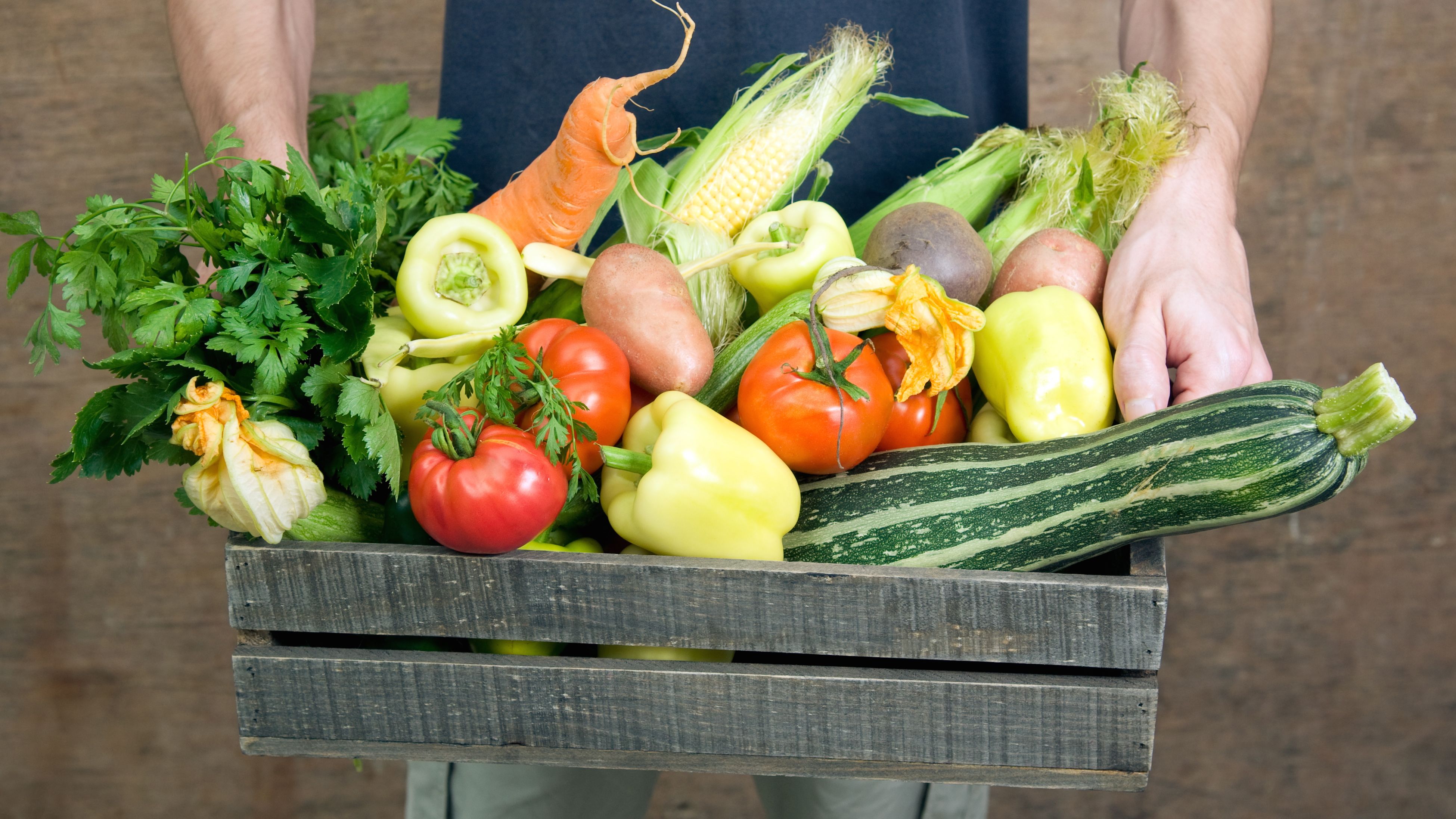Send your question to Umbra!
Q. Is it better to have a veggie box from a produce delivery service sent to my home each week, or to just purchase the produce from the grocery store? They have many of the same products from the same producers.
SDL
San Francisco, Calif.
A. Dearest SDL,
Who wants local veggies? We do! When do we want them? Now! Where will we get them? Well … that one is a little more complicated. But dear readers, I don’t want you overthinking this. Eating lots of local produce is superhealthy for you, the environment, and the economic futures of small farms. There are some differences between the sources for these veggies, which we’re about to dive into. But if you point your compass toward local, organic foods, your choices will all be varying degrees of good, OK?
As you’ve discovered, SDL, there are a few ways to get your mitts on local veggies. You’ve mentioned two: produce delivery services and the grocery store. Let’s add a few more into the mix: community-supported agriculture (CSAs) and the farmers market.
Like I said, all have their pros. But if you must have a best option, it’s probably a CSA share. To the uninitiated: A CSA is a fabulous arrangement in which you pay a farmer up front and receive a box of fresh, in-season produce each week for the growing season. We heart this model because it provides crucial dollars a small farmer can invest in seeds, labor, infrastructure, and other costs for the year. You’re providing the farmer with a guaranteed market, and you’re getting your produce from a local source, which reduces its transport footprint. And on the especially warm-and-fuzzy side, you’re building a connection with the people who grow your food.
For all its benefits, a CSA share might not be 100 percent perfect for everybody, however. Because you’re committing to a local farm, your produce will be tied to the growing season — that means no berries in fall or tomatoes in early spring. By paying up-front, you’re also sharing the risk of drought and crop failures. And if you’re not that into cooking, or you travel a lot, you might appreciate a more flexible option. But if you think it might work for you, SDL, please do consider it.
The farmers market offers similar benefits — personal connections to farms, access to locally grown asparagus and peppers, buying directly from growers — and is more flexible and convenient for shoppers. But it’s riskier for the farmer, as they don’t have the promise of sales on any particular day. “It’s very fickle,” says Luke Woodward, co-founder of Oxbow Farm out here in Washington. “And to make $2,000 at a farmers market, you have to bring $4,000 worth of produce. In our CSA, you sell exactly as much as you have.”
Then there’s the produce delivery service. These are generally bigger organizations that source local, organic produce, but also cast a wider net to more distant farms. This means you have more variety of goodies for a longer amount of time – you might get cold-season mangoes! There’s the added convenience of getting the box delivered to your door. And for the farmers, a produce delivery service means access to a larger market. Of course, this option will usually be bringing you food from farther away, increasing its carbon footprint (though some offer local-only options). You’ll also lose out on that special connection to one farm that you get with a CSA or market.
As a final option, what about just buying local eggplant from the grocery store? That’s perhaps the easiest, most convenient option for consumers. And it’s great to show the supermarket there’s a demand for local produce, notes Chris Iberle, a CSA manger for food advocacy group Seattle Tilth. But keep in mind your local farmers are getting wholesale prices for those zucchinis, unlike in the middleman-free CSA and farmers market.
That’s a long-winded answer to your question, SDL. I’ll let a farmer boil it down for you: “When a local farm is offering a CSA, that’s where you should get your produce,” Woodward of Oxbow Farm says. “In the off season, make your choice between the store and a delivery service.”
Or even easier: Local food is good food, wherever you can find it. I promise that won’t steer you wrong.
Bountifully,
Umbra



